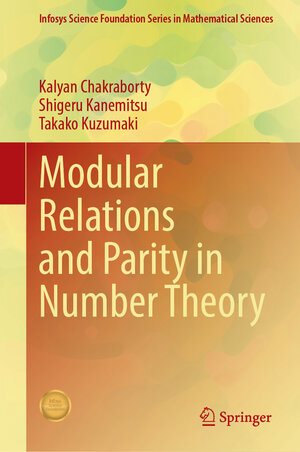
Modular Relations and Parity in Number Theory
von Kalyan Chakraborty, Shigeru Kanemitsu und Takako KuzumakiThis book describes research problems by unifying and generalizing some remote-looking objects through the functional equation and the parity relation of relevant zeta functions, known as the modular relation or RHB correspondence. It provides examples of zeta functions introduced as absolutely convergent Dirichlet series, not necessarily with the Euler product. The book generalizes this to broader cases, explaining the special functions involved. The extension of the Chowla–Selberg integral formula and the Hardy transform are key, substituting the Bochner modular relation in the zeta function of Maass forms. The book also develops principles to deduce summation formulas as modular relations and addresses Chowla’s problem and determinant expressions for class numbers.
Many books define zeta functions using Euler products, excluding Epstein and Hurwitz-type zeta functions. Euler products are constructed from objects with a unique factorization domain property. This book focuses on using the functional equation, called the modular relation, specifically the ramified functional equation of the Hecker type. Here, the gamma factor is the product of two gamma functions, leading to the Fourier–Whittaker expansion, and reducing to the Fourier–Bessel expansion or the Chowla–Selberg integral formula for Epstein zeta functions.



